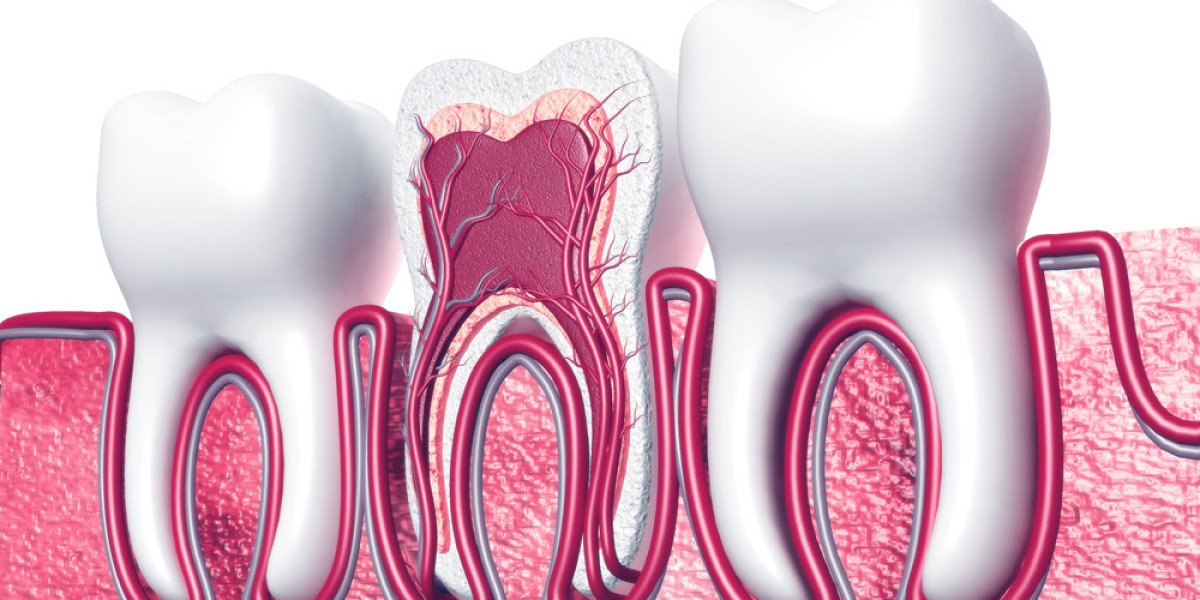For many people in Islamabad, hearing the words "root canal" can trigger anxiety or fear. Despite its intimidating reputation, a root canal is a common and often necessary dental procedure that can save a severely infected tooth. If you're considering Root Canal Treatment in Islamabad , it's important to be informed. This comprehensive FAQ guide answers the most commonly asked questions to help you make the best decision for your oral health.
1. What Is a Root Canal?
A root canal is a dental treatment that removes infected or damaged pulp from inside a tooth. Once the infected pulp is removed, the canal is cleaned, disinfected, filled, and sealed to prevent further infection.
Key Points:
Treats infection inside the tooth
Eliminates pain caused by pulp inflammation
Saves the natural tooth from extraction
2. When Do I Need a Root Canal?
A root canal is usually required when the tooth pulp becomes infected or inflamed due to decay, trauma, cracks, or repeated dental procedures.
Signs You May Need One:
Severe toothache
Sensitivity to hot or cold
Swollen or tender gums
Tooth discoloration
Pimple-like bump on gums
3. Is Root Canal Treatment in Islamabad Painful?
No. Modern root canal procedures are virtually painless. With the use of local anesthesia and advanced technology, discomfort is minimal.
Post-Treatment:
Mild tenderness for 1–2 days is common
Painkillers may be prescribed for relief
4. How Much Does It Cost?
Costs vary depending on the tooth type (incisor, premolar, molar), the clinic, and the complexity of the case.
Average Cost Estimates in Islamabad:
| Tooth Type | Cost (PKR) |
|---|---|
| Front Tooth | 8,000 – 12,000 |
| Premolar | 12,000 – 15,000 |
| Molar | 15,000 – 25,000 |
Additional costs may include X-rays and crown placement.
5. How Long Does the Procedure Take?
A root canal usually takes 1 to 2 appointments, depending on the severity of the infection and the tooth involved.
Time Estimate:
Simple case: 60–90 minutes
Complex molars: Up to 2 hours or multiple visits
6. Is a Crown Necessary After a Root Canal?
In most cases, yes—especially for molars and premolars. A crown provides strength and protection for the tooth after the root canal procedure.
Benefits of a Crown:
Restores full function
Prevents fracture
Improves appearance
7. What Happens If I Don’t Get a Root Canal?
Delaying or avoiding a root canal can lead to worsening infection, abscess formation, and eventual tooth loss.
Risks of Avoidance:
Pain and swelling
Spread of infection
Tooth extraction
Bone loss around the tooth
8. Are There Alternatives to Root Canal?
Yes, but they may not be ideal.
Main Alternatives:
Tooth Extraction: Leads to shifting teeth and jaw issues
Pulpotomy/Pulpectomy: For children or temporary relief
Antibiotics: Only temporary and do not cure the issue
Saving your natural tooth is always the best option when feasible.
9. Is the Procedure Safe?
Root canal treatment is safe and has a very high success rate when performed by qualified professionals using proper sterilization techniques.
Technologies Enhancing Safety:
Digital X-rays
Apex locators
Rotary endodontics
Operating microscopes
10. Can Children Get Root Canal Treatment?
Yes, children with baby teeth or permanent teeth that are infected can undergo pediatric root canal procedures like pulpotomy or pulpectomy.
11. How Do I Care for My Tooth After the Procedure?
Post-procedure care is essential to ensure healing and avoid complications.
Aftercare Tips:
Avoid chewing on the treated side until the crown is placed
Maintain oral hygiene
Follow your dentist’s medication schedule
Visit for follow-up and crown placement
12. How Long Will My Treated Tooth Last?
With proper care, a root canal-treated tooth can last a lifetime. Regular check-ups and good oral hygiene are key.
13. Can I Drive Home After the Treatment?
Yes. Root canals are performed under local anesthesia, so you can drive yourself home unless sedation is used.
14. Can the Infection Come Back?
If all the canals are not thoroughly cleaned or if a crack occurs in the tooth, reinfection can happen. Modern tools reduce this risk significantly.
15. How Do I Choose the Right Clinic in Islamabad?
Choosing a clinic with advanced equipment and skilled endodontists makes a big difference.
Consider:
Experience of the dentist
Availability of technology (CBCT, microscope)
Patient reviews
Sterilization practices
16. Will My Tooth Look Normal After a Root Canal?
Yes, especially after crown placement. A good-quality crown will match the shape and color of your natural teeth.
17. What Is the Success Rate?
Root canal treatments have a success rate of over 95% when performed by experienced professionals under the right conditions.
18. What If the Tooth Breaks After the Treatment?
If a crown is not placed in time or the tooth is excessively weakened, it can fracture. This is why prompt crown restoration is essential after a root canal.
19. Is It Covered by Insurance?
Some dental insurance plans in Pakistan may cover a portion of the root canal cost. It's best to check with your provider or the clinic's billing department.
20. What Should I Eat After the Procedure?
Stick to soft foods like soups, mashed potatoes, yogurt, and smoothies. Avoid hard or sticky items until the crown is placed.
Summary: The Importance of Informed Decisions
Root Canal Treatment in Islamabad is a reliable, safe, and effective procedure to preserve your natural teeth. Understanding what to expect and choosing the right clinic can significantly improve your comfort and outcome.
If you're experiencing symptoms or have been advised to undergo a root canal, don't delay. Acting early can save your tooth and prevent serious complications.







